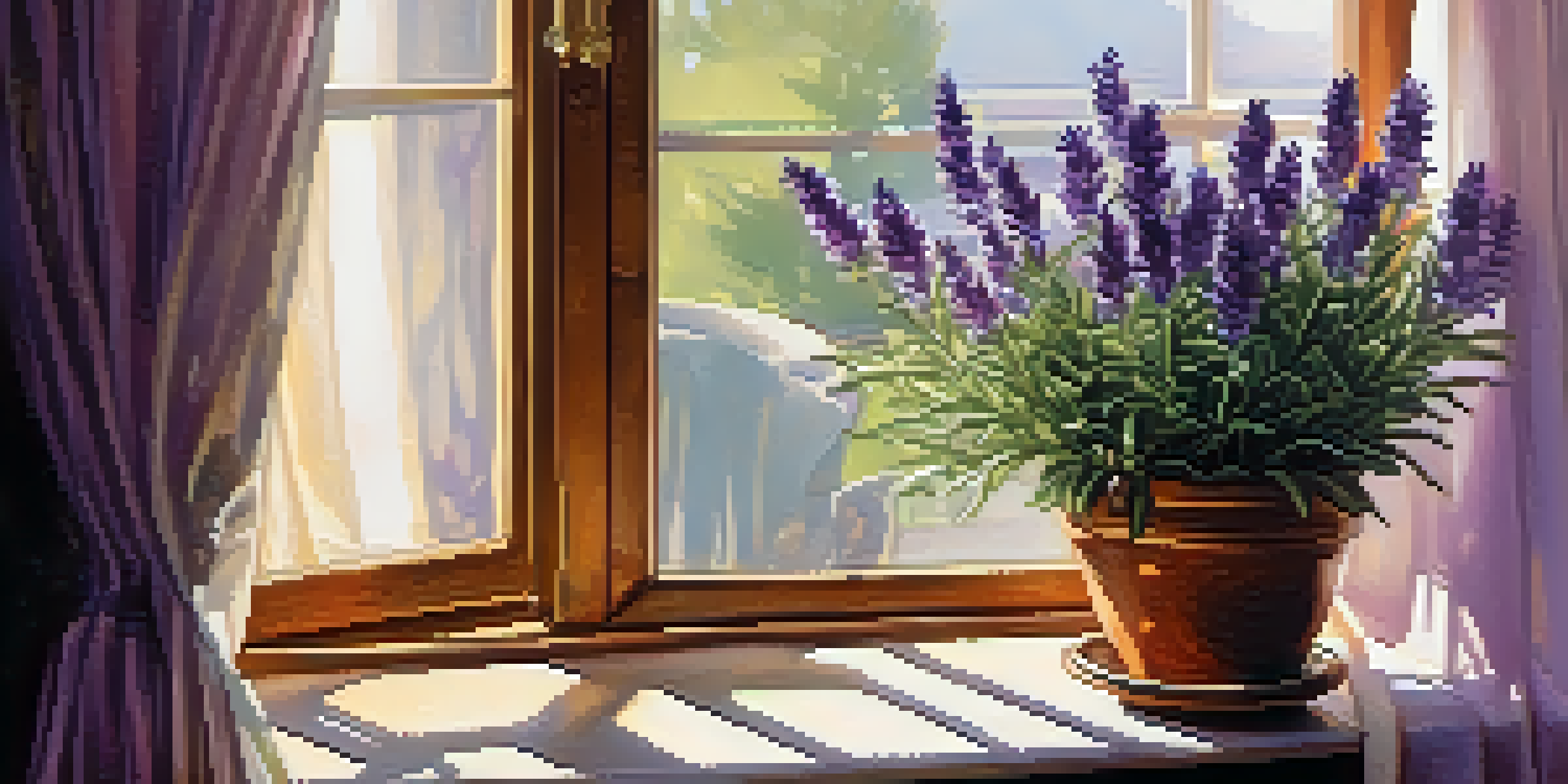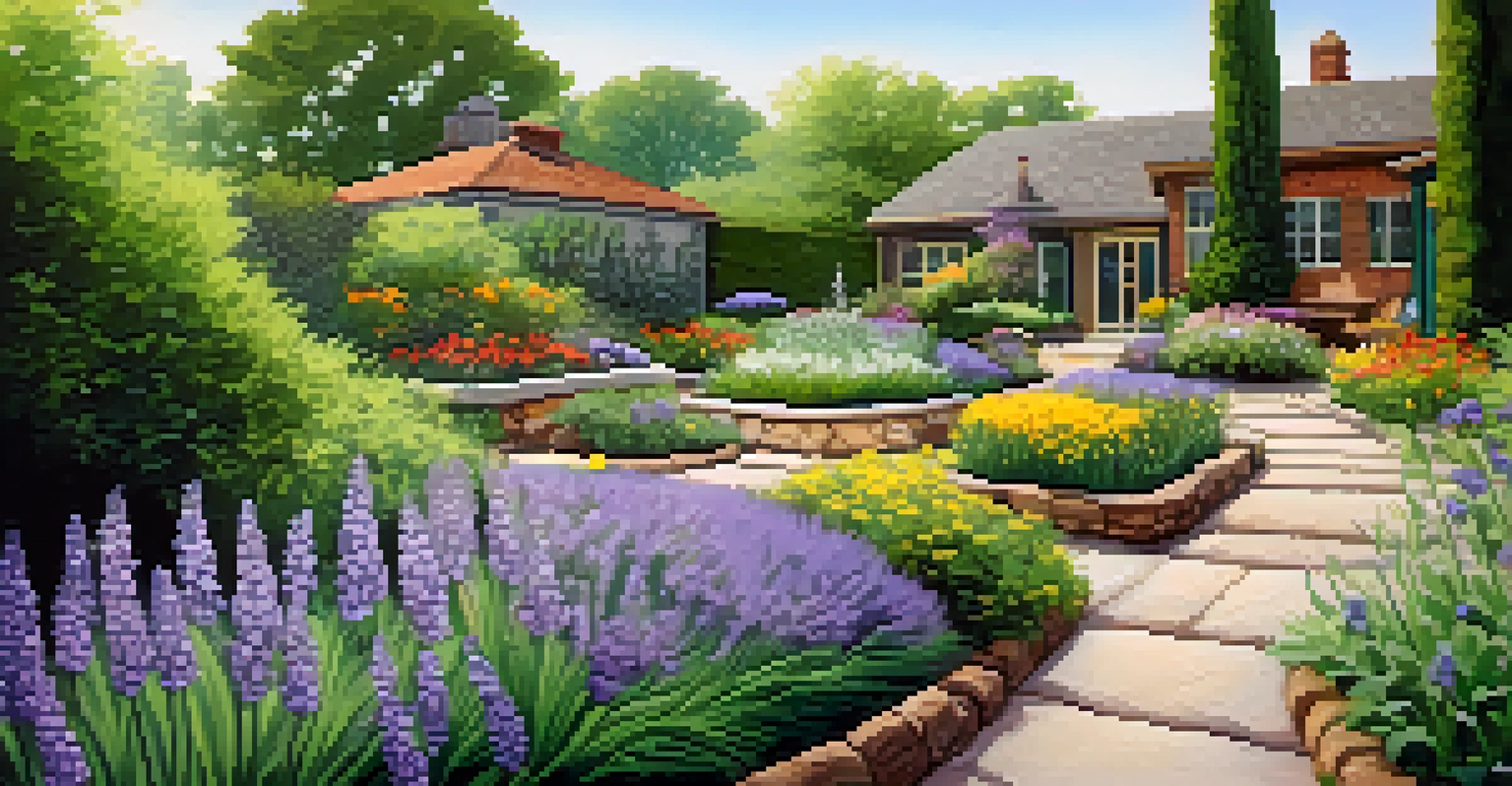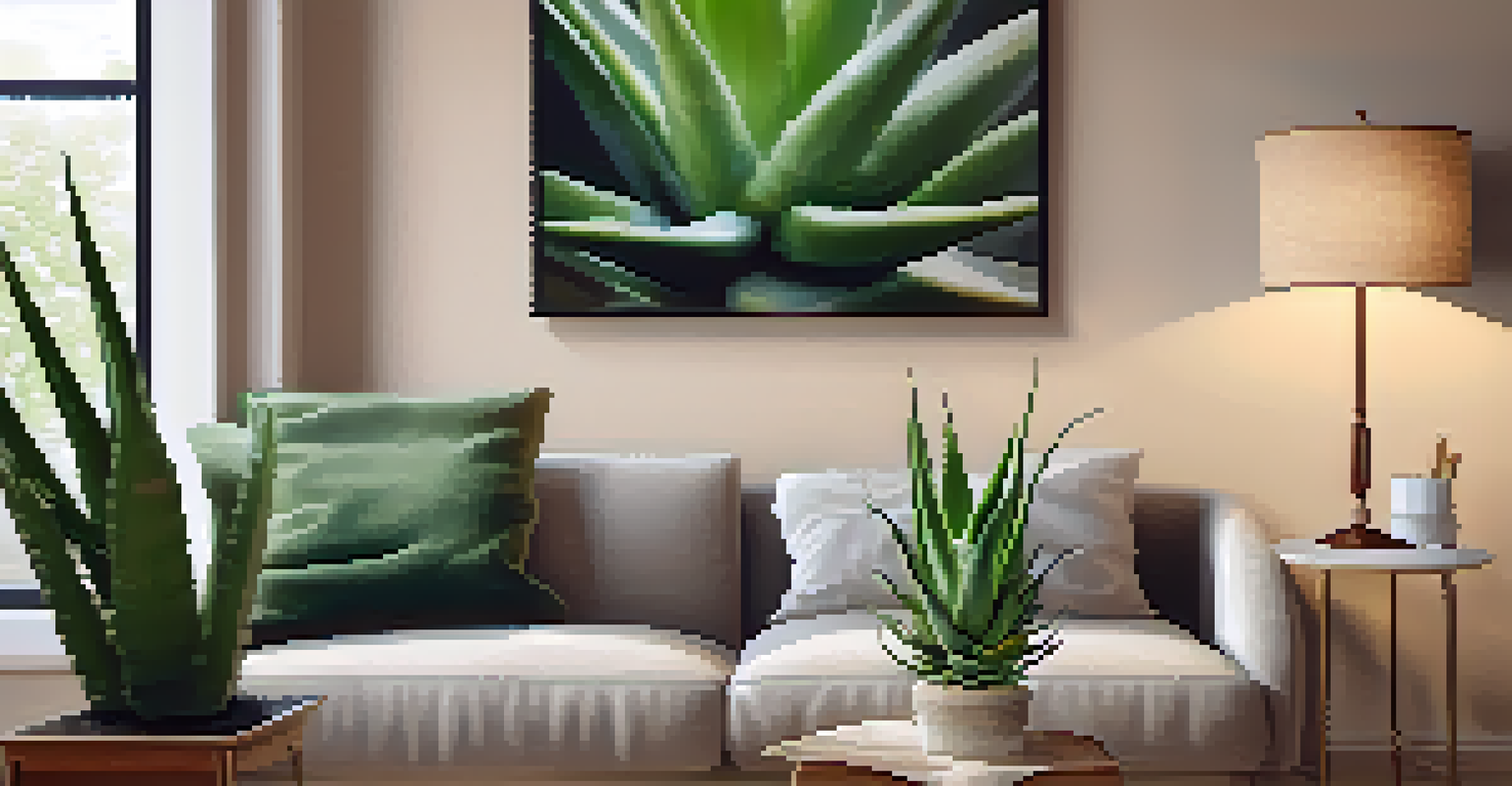Nature's Therapy: Exploring Plants for Stress Relief

The Connection Between Nature and Stress Relief
Nature has an incredible ability to calm our minds and soothe our souls. Studies have shown that spending time outdoors can significantly reduce stress levels. Whether it’s a walk in the park or simply gazing out at greenery, nature has a restorative power that helps us feel more grounded.
In every walk with nature one receives far more than he seeks.
This connection isn’t just a coincidence; it’s rooted in our biology. Humans have evolved alongside nature, and our senses are finely tuned to respond to natural environments. The sights, sounds, and even smells of plants can evoke feelings of peace and relaxation, making nature a perfect antidote to our busy lives.
Incorporating plants into our living spaces can also mimic this calming effect. Houseplants not only beautify our surroundings but also create a serene atmosphere that can help us unwind after a long day. So, let’s explore some of the plants that can specifically help ease stress.
Lavender: The Calming Fragrance
Lavender is often heralded as one of the most effective plants for stress relief. Its lovely purple flowers are not only visually appealing but also renowned for their calming properties. The soothing scent of lavender has been used in aromatherapy to promote relaxation and reduce anxiety.

Many people find that incorporating lavender into their daily routine can make a significant difference. Whether in the form of essential oils, tea, or even dried sachets, lavender can help create a tranquil environment. Imagine coming home after a hectic day and being greeted by the calming aroma of lavender wafting through your space.
Nature Reduces Stress Effectively
Spending time outdoors and surrounding ourselves with plants can significantly lower stress levels and promote relaxation.
Additionally, research supports lavender's effectiveness in lowering heart rate and blood pressure, further emphasizing its role in promoting relaxation. So, why not add a bit of lavender to your space and see how it transforms your mood?
Chamomile: A Soothing Herbal Ally
Chamomile is another plant that has long been associated with stress relief, particularly in the form of tea. This gentle herb has calming properties that can help ease tension and promote a restful night’s sleep. Many people turn to chamomile tea as a bedtime ritual, allowing its comforting warmth to wash over them.
Nature does not hurry, yet everything is accomplished.
What makes chamomile so effective? It contains antioxidants that may interact with brain receptors, promoting a sense of tranquility. Picture yourself sipping a warm cup of chamomile tea while wrapped in a cozy blanket; it’s a simple yet effective way to relax after a tough day.
In addition to tea, chamomile can be used in essential oil form for aromatherapy. The sweet, apple-like scent can create a cozy atmosphere in your home, turning any space into a sanctuary of peace.
Basil: More Than Just a Culinary Herb
While basil is often recognized for its culinary uses, it also has stress-relieving properties that deserve attention. The aromatic leaves of basil have been found to reduce cortisol levels, the hormone associated with stress. Just imagine the delightful scent of fresh basil wafting through your kitchen as you prepare a meal—it's a sensory experience that uplifts your spirit.
Incorporating basil into your diet can be both delicious and beneficial for your mental health. From pesto to salads, the possibilities are endless! By adding this herb to your meals, you not only enhance the flavor but also contribute to your overall well-being.
Plants Offer Calming Benefits
Herbs like lavender, chamomile, and basil provide soothing effects that can enhance our mental well-being and create tranquil environments.
Additionally, basil can also be used in teas or infused oils, providing a versatile way to enjoy its calming effects. So, the next time you cook, consider reaching for basil—not just for taste, but for a dose of tranquility.
Aloe Vera: The Soothing Succulent
Aloe vera is often celebrated for its skin-soothing properties, but it also has a calming effect on our minds. This resilient succulent is easy to care for and can thrive indoors, making it a perfect addition to any home. The sight of its lush, green leaves can evoke feelings of calmness and tranquility.
Beyond its aesthetic appeal, aloe vera can purify the air, creating a more serene environment. Studies suggest that having plants like aloe vera in our spaces can enhance our mood and reduce feelings of anxiety. Just imagine coming home to a little oasis of greenery that promotes relaxation.
Moreover, the gel from aloe vera leaves can be used for self-care routines, providing a holistic approach to stress relief. By nurturing this plant and using its benefits, you’re not just caring for your skin, but also your mental health.
Jasmine: The Sweet Scent of Relaxation
Jasmine is known for its enchanting fragrance that can instantly elevate your mood. The sweet scent of jasmine is not just pleasant; it is also linked to reduced anxiety and improved sleep quality. Many people find that diffusing jasmine essential oil or using jasmine-scented products creates a calming ambiance in their homes.
Beyond its aroma, jasmine can also have a positive effect on our emotional well-being. By incorporating jasmine into your routine, whether through teas or essential oils, you can transform your space into a sanctuary of relaxation. It’s like inviting a gentle breeze of calmness into your life.
Create Your Stress-Relief Garden
Cultivating a personal garden with calming plants can serve as a therapeutic practice, allowing you to reconnect with nature and unwind.
Interestingly, some studies have shown that jasmine can improve sleep quality, making it a great addition to your nighttime routine. Embrace the soothing power of jasmine, and let its delicate fragrance guide you to a more peaceful state of mind.
Creating a Stress-Relief Garden at Home
One wonderful way to incorporate stress-relieving plants into your life is by creating a dedicated stress-relief garden. This special space can be as simple as a few pots on your balcony or a larger garden in your backyard. The idea is to curate a selection of plants that resonate with you personally and promote relaxation.
Consider including a mix of herbs like lavender, chamomile, and basil alongside visually soothing flowers like jasmine. As you tend to your garden, the act of nurturing plants can itself become a form of therapy, allowing you to disconnect from daily stressors and reconnect with nature.

Moreover, spending time in your garden can be a meditative experience. Whether you’re planting, watering, or simply enjoying the view, this space can become a haven where you can unwind and recharge. So grab a shovel and get planting—your mind will thank you!
Embracing Nature's Therapy in Daily Life
Integrating the calming effects of plants into your daily life doesn’t have to be complicated. Start small by adding a few houseplants to your workspace or bedroom. The mere presence of greenery can uplift your mood and create a more serene environment, helping you manage stress as you go about your day.
Additionally, consider incorporating herbal teas or essential oils into your daily routine. Taking a moment to brew a cup of chamomile or diffuse some lavender oil can provide a quick escape from the chaos of everyday life. These small acts of self-care remind us that we can take control of our well-being, one sip or scent at a time.
Finally, don’t forget the power of outdoor time. Whether it’s a stroll through a local park or simply sitting in your backyard, embracing nature can work wonders for our mental health. By making nature a priority, we can cultivate a lifestyle that prioritizes peace and tranquility.